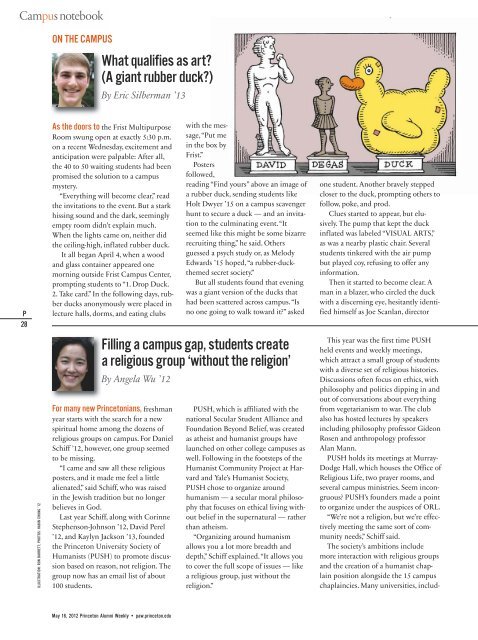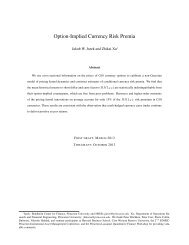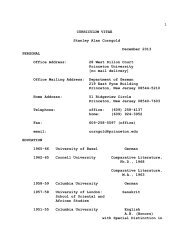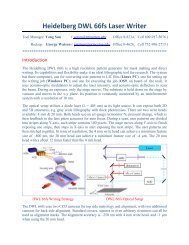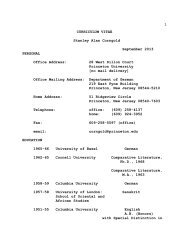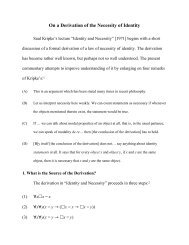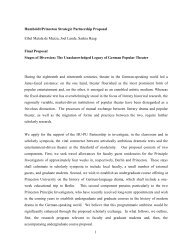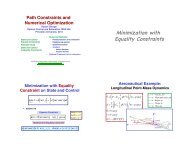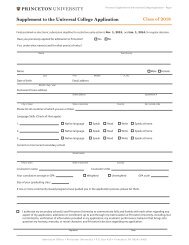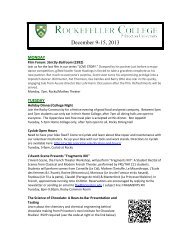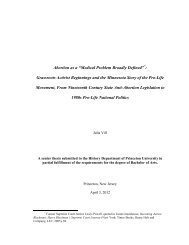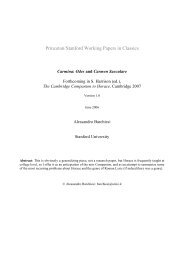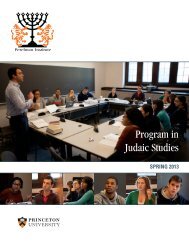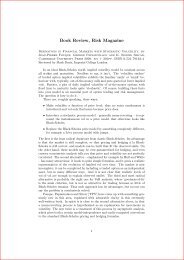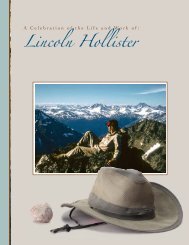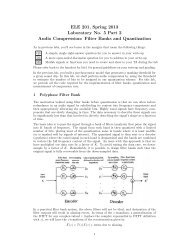Campaign residen the P -litics - Princeton University
Campaign residen the P -litics - Princeton University
Campaign residen the P -litics - Princeton University
Create successful ePaper yourself
Turn your PDF publications into a flip-book with our unique Google optimized e-Paper software.
Campusnotebook<br />
P<br />
28<br />
ILLUSTRATION: RON BARRETT; PHOTOS: HABIN CHUNG ’12<br />
ON THE CAMPUS<br />
What qualifies as art?<br />
(A giant rubber duck?)<br />
By Eric Silberman ’13<br />
As <strong>the</strong> doors to <strong>the</strong> Frist Multipurpose<br />
Room swung open at exactly 5:30 p.m.<br />
on a recent Wednesday, excitement and<br />
anticipation were palpable: After all,<br />
<strong>the</strong> 40 to 50 waiting students had been<br />
promised <strong>the</strong> solution to a campus<br />
mystery.<br />
“Everything will become clear,” read<br />
<strong>the</strong> invitations to <strong>the</strong> event. But a stark<br />
hissing sound and <strong>the</strong> dark, seemingly<br />
empty room didn’t explain much.<br />
When <strong>the</strong> lights came on, nei<strong>the</strong>r did<br />
<strong>the</strong> ceiling-high, inflated rubber duck.<br />
It all began April 4, when a wood<br />
and glass container appeared one<br />
morning outside Frist Campus Center,<br />
prompting students to “1. Drop Duck.<br />
2. Take card.” In <strong>the</strong> following days, rubber<br />
ducks anonymously were placed in<br />
lecture halls, dorms, and eating clubs<br />
May 16, 2012 <strong>Princeton</strong> Alumni Weekly • paw.princeton.edu<br />
with <strong>the</strong> message,<br />
“Put me<br />
in <strong>the</strong> box by<br />
Frist.”<br />
Posters<br />
followed,<br />
reading “Find yours” above an image of<br />
a rubber duck, sending students like<br />
Holt Dwyer ’15 on a campus scavenger<br />
hunt to secure a duck — and an invitation<br />
to <strong>the</strong> culminating event. “It<br />
seemed like this might be some bizarre<br />
recruiting thing,” he said. O<strong>the</strong>rs<br />
guessed a psych study or, as Melody<br />
Edwards ’15 hoped, “a rubber-duck<strong>the</strong>med<br />
secret society.”<br />
But all students found that evening<br />
was a giant version of <strong>the</strong> ducks that<br />
had been scattered across campus. “Is<br />
no one going to walk toward it?” asked<br />
Filling a campus gap, students create<br />
areligiousgroup‘without<strong>the</strong>religion’<br />
By Angela Wu ’12<br />
For many new <strong>Princeton</strong>ians, freshman<br />
year starts with <strong>the</strong> search for a new<br />
spiritual home among <strong>the</strong> dozens of<br />
religious groups on campus. For Daniel<br />
Schiff ’12, however, one group seemed<br />
to be missing.<br />
“I came and saw all <strong>the</strong>se religious<br />
posters, and it made me feel a little<br />
alienated,” said Schiff, who was raised<br />
in <strong>the</strong> Jewish tradition but no longer<br />
believes in God.<br />
Last year Schiff, along with Corinne<br />
Stephenson-Johnson ’12, David Perel<br />
’12, and Kaylyn Jackson ’13, founded<br />
<strong>the</strong> <strong>Princeton</strong> <strong>University</strong> Society of<br />
Humanists (PUSH) to promote discussion<br />
based on reason, not religion. The<br />
group now has an email list of about<br />
100 students.<br />
PUSH, which is affiliated with <strong>the</strong><br />
national Secular Student Alliance and<br />
Foundation Beyond Belief, was created<br />
as a<strong>the</strong>ist and humanist groups have<br />
launched on o<strong>the</strong>r college campuses as<br />
well. Following in <strong>the</strong> footsteps of <strong>the</strong><br />
Humanist Community Project at Harvard<br />
and Yale’s Humanist Society,<br />
PUSH chose to organize around<br />
humanism — a secular moral philosophy<br />
that focuses on ethical living without<br />
belief in <strong>the</strong> supernatural — ra<strong>the</strong>r<br />
than a<strong>the</strong>ism.<br />
“Organizing around humanism<br />
allows you a lot more breadth and<br />
depth,” Schiff explained. “It allows you<br />
to cover <strong>the</strong> full scope of issues — like<br />
a religious group, just without <strong>the</strong><br />
religion.”<br />
one student. Ano<strong>the</strong>r bravely stepped<br />
closer to <strong>the</strong> duck, prompting o<strong>the</strong>rs to<br />
follow, poke, and prod.<br />
Clues started to appear, but elusively.<br />
The pump that kept <strong>the</strong> duck<br />
inflated was labeled “VISUAL ARTS,”<br />
as was a nearby plastic chair. Several<br />
students tinkered with <strong>the</strong> air pump<br />
but played coy, refusing to offer any<br />
information.<br />
Then it started to become clear. A<br />
man in a blazer, who circled <strong>the</strong> duck<br />
with a discerning eye, hesitantly identified<br />
himself as Joe Scanlan, director<br />
This year was <strong>the</strong> first time PUSH<br />
held events and weekly meetings,<br />
which attract a small group of students<br />
with a diverse set of religious histories.<br />
Discussions often focus on ethics, with<br />
philosophy and po<strong>litics</strong> dipping in and<br />
out of conversations about everything<br />
from vegetarianism to war. The club<br />
also has hosted lectures by speakers<br />
including philosophy professor Gideon<br />
Rosen and anthropology professor<br />
Alan Mann.<br />
PUSH holds its meetings at Murray-<br />
Dodge Hall, which houses <strong>the</strong> Office of<br />
Religious Life, two prayer rooms, and<br />
several campus ministries. Seem incongruous?<br />
PUSH’s founders made a point<br />
to organize under <strong>the</strong> auspices of ORL.<br />
“We’re not a religion, but we’re effectively<br />
meeting <strong>the</strong> same sort of community<br />
needs,” Schiff said.<br />
The society’s ambitions include<br />
more interaction with religious groups<br />
and <strong>the</strong> creation of a humanist chaplain<br />
position alongside <strong>the</strong> 15 campus<br />
chaplaincies. Many universities, includ-


